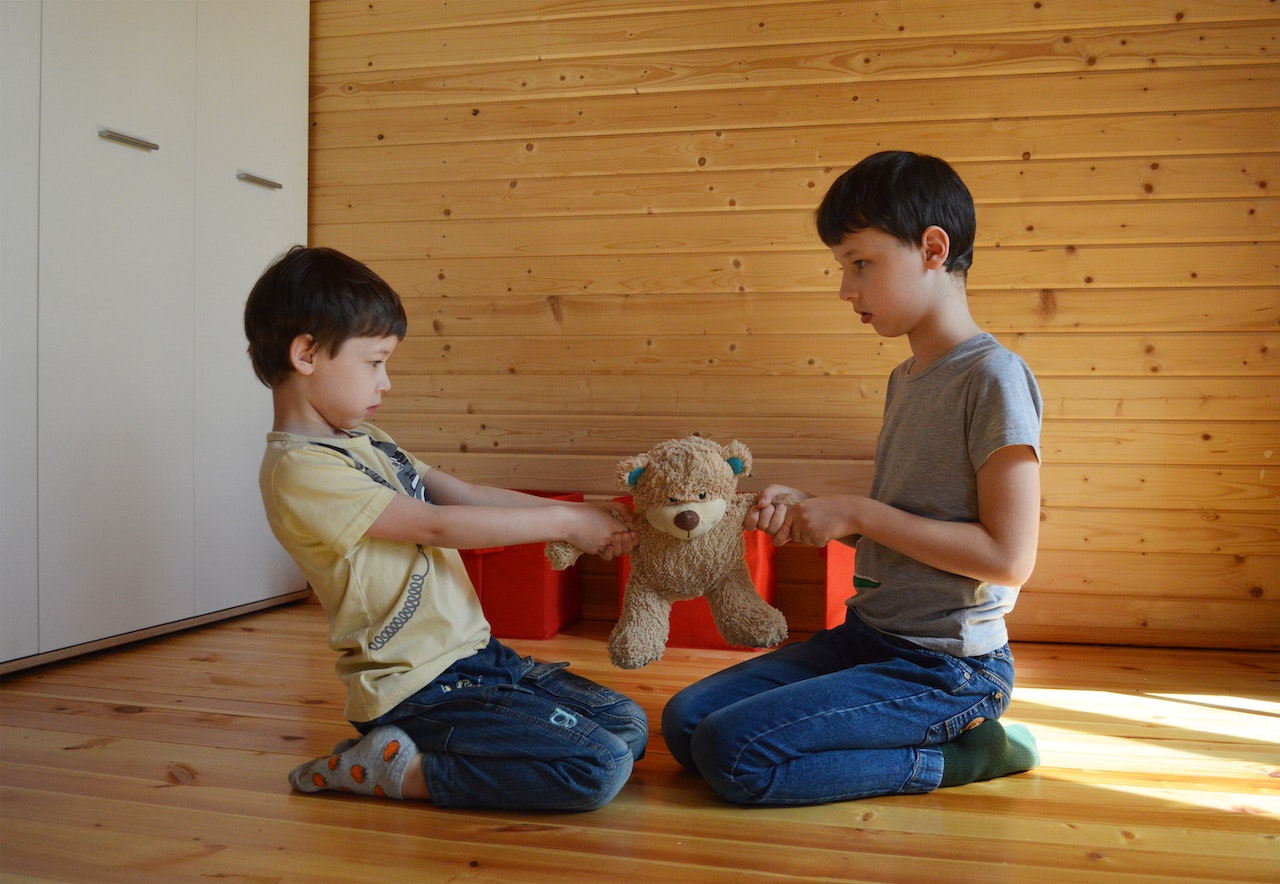Alright, brave parents and guardians, gather around! It’s time to dive deep into the mysterious world of children’s dentistry, a realm filled with oversized chairs, shiny instruments, and the ever-pervasive scent of mint. You may have noticed your little one’s knees shaking at the mere mention of the ‘D’ word. No, not ‘Dumbledore’ — I’m talking about the Dentist. Fear not, for I’m here to embark on a fantastical journey to transform your child’s dental dread into a walk in the park (or at least a less terrifying ordeal).
Understanding the Fear – It’s Not Just About the Boogeyman
First things first, let’s break it down. Children are not born with a manual, and neither is their fear of the dentist. It’s crucial to understand that their dental anxiety is as real as your confusion over the latest TikTok trends. So, where does this fear originate? Is it the stories from older siblings, the dramatic portrayal of dentists in cartoons, or just the unknown? Well, it’s a bit of everything.
1. The Fear of the Unknown
Children thrive on routine and predictability. Introduce them to a place where they lie on a reclining chair, surrounded by strange noises and unfamiliar faces in masks, and voila — you’ve got yourself a recipe for panic.
Advice: Start by playing ‘dentist’ at home. Get a little toothbrush and mirror, and show them how the dentist will count their teeth and make them sparkle. Throw in a funny voice for the dentist character, and you’ve just turned a scary experience into playtime.
2. Pain Anticipation
Kids have an incredible imagination. They might envision the dentist as the villain from their favorite bedtime story.
Advice: Be honest, but keep it light. Explain that the dentist is like a superhero for teeth, fighting off the nasty sugar bugs. Assure them that the dentist will be gentle, and if anything feels uncomfortable, they can raise their hand, and the superhero will stop immediately.
3. Stories and Stereotypes
Children are like sponges, absorbing everything around them, including that one time Aunt Linda dramatically recounted her root canal during Thanksgiving dinner.
Advice: Monitor what they’re exposed to and provide positive stories about dental visits. If you’ve had a good experience, share it. If cartoons portray dentists negatively, discuss how this is just for fun and not how real dentists operate.
Preparing for the Big Day – Turning Anxiety into Anticipation
Alright, now that we’ve psychoanalyzed our little munchkins let’s get down to business. How do we transform their trembling terror into exuberant excitement? It’s showtime!
1. The Art of Distraction
Use your parental superpowers of distraction. Talk about the fun things they can do after the visit, or let them choose a reward for being brave.
Advice: Create a ‘Dental Adventure’ story where they are the main character, bravely fighting off the sugar bugs with the help of their sidekick, Mr. Dentist.
2. Familiarity Breeds Comfort
Visit the dental office before the appointment, so it’s not an alien territory during the D-day.
Advice: Turn it into an adventure. Explore the waiting room, meet the staff, and if possible, take a peek at the magical chair that goes up and down.
Demystifying the Dental Tools – They’re Not Medieval Torture Devices, Promise!
Next, let’s dive into the shiny, buzzing world of dental tools. Yes, I know, they look like they belong in a mad scientist’s lab, but I promise they’re all there to help. Let’s put on our explorer hats and turn this into an educational escapade.
1. The Water Squirter and Mr. Thirsty
That little water gun isn’t for a dentist’s midday fun, and Mr. Thirsty isn’t just a funny-looking straw. Explain that the water squirter helps keep their teeth clean, and Mr. Thirsty is there to take a little drink and make sure they don’t get wet.
Advice: Play a game of water squirter at home. Use a spray bottle and let them spray your teeth and then use a straw to mimic Mr. Thirsty. Make it fun, and show that there’s nothing to fear.
2. The Tiny Mirror
This isn’t for the dentist to check if they have spinach in their teeth; it’s a magical mirror that lets them see all the hidden parts of your kid’s teeth, making sure they’re strong and healthy.
Advice: You could get a little dental mirror and let them explore their own mouth or even yours. Make it a treasure hunt to find all the hidden food particles.
3. The Tooth Counter
That little hook isn’t a pirate’s tool; it’s there to count their teeth and make sure none of them are playing hide and seek.
Advice: Use a toothpick (gently!) and play a counting game with their teeth. Celebrate when you reach the last one, and make it a triumphant moment.
Post-Visit Celebration – Because They Just Braved the Dental Seas
They did it! Your little trooper just faced the dental chair and came out smiling (hopefully). Now it’s time for a celebration, pirate style!
1. Treasure Chest of Rewards
Forget the old sticker and toy box at the dentist; create a treasure chest at home filled with small rewards. Let them choose their bounty for being so brave.
Advice: It doesn’t have to be big. Small toys, books, or even a little extra playtime can work wonders. The key is to make it a celebration.
2. Dental Debrief
Talk about the visit. What did they like? Was there anything scary? Validate their feelings and emphasize the positive aspects.
Advice: Make it a fun story recap. “And then the brave little pirate faced the tooth counter hook and didn’t even flinch! What a champ!”
3. Document the Adventure
Take a picture after every visit and create a ‘Brave Little Pirate’ book, documenting their dental adventures.
Advice: Make it a scrapbook and let them decorate it. It will serve as a great memory book and a reminder that the dentist is not so scary after all.
Conclusion
There you have it, folks, a treasure map to navigate through the turbulent seas of dental fear. Arm your little pirates with knowledge, turn fear into fun, and watch as they conquer the dental chair like the brave adventurers they are. Remember, every great pirate had to start somewhere, and with your guidance, your child will be sailing smoothly through their dental journey in no time. So hoist the sails, set the course, and let the dental adventures begin! Because when it comes to conquering fears, laughter and knowledge are the best weapons in our arsenal. Here’s to happy teeth and even happier little pirates!
Pro Tips for Smooth Sailing
- Lead by Example: Children are master imitators. If they see you dreading your own dental appointments, they’re likely to follow suit. Make your dental visits seem like a walk in the park and emphasize how refreshed and happy you feel afterward. If you can, let them accompany you to one of your routine check-ups so they can see firsthand that it’s not so bad.
- Positive Reinforcement is Key: Just like training a puppy, positive reinforcement can work wonders. Praise their bravery, no matter how small. Did they sit in the chair without crying? That’s a win. Did they open their mouth for the dentist? Another win. Celebrate these victories, and they’ll start associating the dentist with positive experiences.
- Choose the Right Dentist: Not all dentists are created equal, especially when it comes to dealing with frightened little ones. Do your research and find a pediatric dentist who is experienced in handling children’s anxieties. These professionals are trained to create a comforting environment and have the patience of saints.
- Establish a Dental Routine at Home: Make brushing and flossing a fun part of their daily routine. Sing songs, tell stories, and turn it into a game. The more familiar they are with oral hygiene, the less daunting the dentist’s tools will seem.
- Educate Through Fun Activities: There are countless books, apps, and games designed to teach children about dental health in an engaging way. Invest in these resources and turn learning into playtime.
- Avoid Bribery: While rewards are great, try to avoid outright bribery. Saying things like, “If you don’t cry at the dentist, you’ll get a toy,” can create more anxiety. Instead, focus on positive reinforcement and celebration after the fact.
- Patience is Virtue: Understand that overcoming dental fear is a process. It might take several visits before your child feels completely comfortable. Be patient, stay positive, and remember, you’re laying the groundwork for a lifetime of healthy dental habits.
Navigating the Dental Seas: Frequently Asked Questions
The American Academy of Pediatric Dentistry recommends that children should see a dentist by their first birthday or within six months after the first tooth erupts, whichever comes first. Starting early helps in establishing a ‘dental home’ and lays the groundwork for a lifetime of good oral hygiene.
Generally, children should visit the dentist every six months for regular check-ups and cleanings, unless advised otherwise by their dentist. Regular visits help in detecting potential issues early and keeping their teeth in shipshape!
Patience is key. Every child is different, and some may take longer to warm up to the idea of visiting the dentist. Continue with positive reinforcement, practice dental routines at home, and consider seeking a pediatric dentist who specializes in treating anxious children.
Absolutely! There are numerous children’s books and apps designed to make dental care fun and educational. “The Berenstain Bears Visit the Dentist” and “Brush Your Teeth, Please: A Pop-up Book” are great options to start with.
Look for a dentist who specializes in pediatric dentistry as they have additional training in treating children. You can ask for recommendations from family and friends, read online reviews, and even schedule a visit to the office beforehand to ensure it’s a child-friendly environment.
Stay calm and call your dentist right away. Most dental offices have an emergency contact number for after-hours incidents. If you’re unable to reach the dentist and it’s a serious emergency, don’t hesitate to go to the emergency room.
Turn brushing and flossing into a game or a story-time adventure. You can also let your child choose their own toothbrush and toothpaste (with your approval, of course) to make them more excited about dental care.
Positive reinforcement works wonders, so yes, a small reward or words of praise can help in creating positive associations with dental visits. Just try to avoid using sugary treats as rewards, as that might send mixed messages.
Take the time to talk through the experience with your child, validating their feelings and focusing on the positive aspects. You might also consider seeking a different dentist if the experience was truly negative.
Talk to them about what to expect in a positive and fun way. Consider reading books or watching shows that portray dental visits in a positive light. You can also play ‘dentist’ at home and let them get familiar with the idea of someone looking at their teeth.



